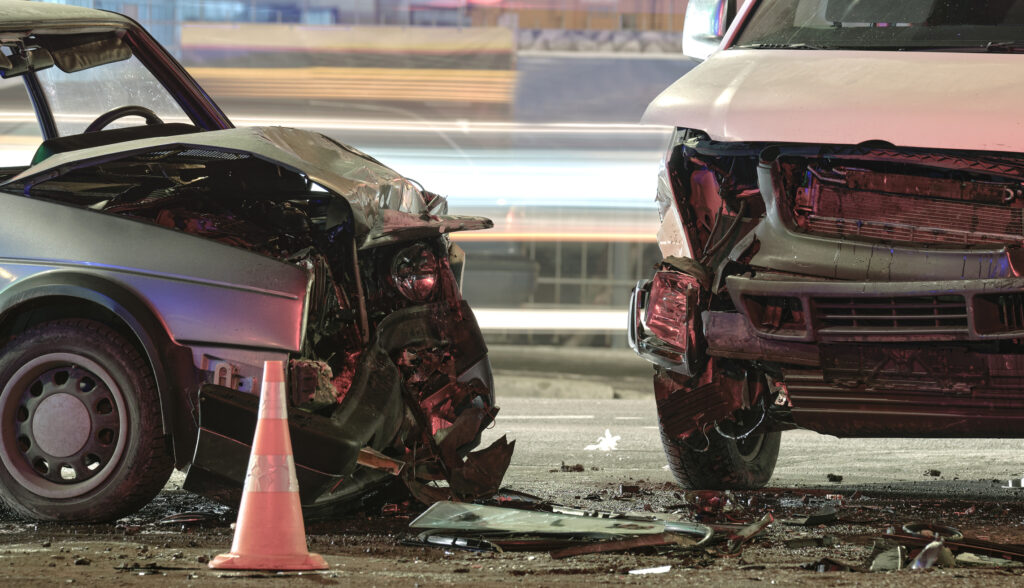What is a Wrongful Death Lawsuit?

Who is Eligible to File a Wrongful Death Lawsuit in California?
A wrongful death lawsuit in California is a legal action brought against a party whose negligence or intentional act caused someone’s death. According to the National Center for Health Statistics (CDC), there were 224,935 unintentional injury deaths in the United States. Of these, 45,404 lives were lost in motor vehicle traffic accidents. Surviving family members often deal with emotional distress, financial hardship, and pain and suffering after a loved one’s death. If the death was the result of another party’s negligence or misconduct, certain family members may be eligible to seek financial compensation for their losses. Understanding who is eligible to file a wrongful death lawsuit is crucial. Read on to learn who can file a wrongful death lawsuit in California.
The Surviving Spouse or Domestic Partner of the Decedent
The surviving spouse or registered domestic partner typically has the primary right to file a wrongful death suit. This individual is entitled to seek compensation for both economic and non-economic losses resulting from the death of their partner.
The Surviving Children
If there is no surviving spouse, the deceased’s children may seek compensation in a wrongful death lawsuit. This includes the biological children, fully adopted children, and stepchildren.
The Putative Spouse
In some cases, a putative spouse may have the right to file a wrongful death lawsuit. A putative spouse believes, in good faith, that they are legally married to the decedent and has no knowledge that they are not legally married.
The Parents of the Decedent
The parents of the deceased may also pursue a wrongful death claim if they can prove they financially depended on the decedent and there is no surviving spouse or children. In the case that the deceased individual is a minor or unmarried without children, the surviving parents may pursue compensation for their loss.
Dependent Minors Living in the Household
If dependent minors were living in the same household as the deceased person for at least 6 months before their death and were dependent on the deceased for at least 50% of their financial support, they may be eligible to file a wrongful death claim.
A Personal Representative of the Deceased’s Estate
There may be multiple people who are eligible to file a wrongful death suit. In this case, a personal representative of the deceased’s estate may file a lawsuit on behalf of the claimants.
Other Heirs
Other heirs of the deceased may be entitled to file a wrongful death lawsuit. Individuals with a direct relationship to the deceased may have the legal right to seek compensation for their losses. It’s essential to consult with an experienced wrongful death lawyer who can determine if you have a viable case.
What is the Burden of Proof in a California Wrongful Death Lawsuit?
In a California wrongful death lawsuit, it’s essential to demonstrate the burden of proof. The burden of proof is the obligation to present sufficient evidence to prove that the defendant is responsible for the death of the decedent. The key elements that must be established in a wrongful death case include the following:
Duty of Care: The plaintiff must establish that the defendant owed a duty of care to the deceased person.
The Breach of the Duty of Care: The plaintiff must demonstrate that the defendant acted negligently or committed a wrongful act that directly resulted in the individual’s death.
Causation: There must be a clear link between the defendant’s actions and the death of the decedent.
Damages: The plaintiff needs to provide evidence of the damages suffered as a result of the death. This includes both economic and non-economic losses such as medical expenses, burial expenses, funeral expenses, lost income, and emotional distress. It’s important to note that California wrongful death law does not grant punitive damages.
Meeting the burden of proof requires a thorough investigation, expert testimony, and compelling evidence to build a strong case against the responsible party.
Common Types of Auto Accident Wrongful Death Lawsuits

Auto accidents are a leading cause of wrongful death cases in California. In 2021, there were 4,285 traffic fatalities in California. Common types of auto accident wrongful death lawsuits include:
Drunk Driving Accidents: Cases where the at-fault driver was under the influence of alcohol or drugs at the time of the accident often result in wrongful death claims.
Distracted Driving Accidents: Auto accidents caused by drivers who were distracted by texting, talking on the phone, or other distractions may lead to wrongful death lawsuits.
Reckless Driving Accidents: Excessive speeding, aggressive driving, and other reckless behaviors can be grounds for a wrongful death claim if they result in a fatal accident.
Defective Vehicle Accidents: If a defective vehicle or faulty automotive part contributes to a fatal accident, the manufacturer or distributor may be held responsible in a wrongful death lawsuit.
Intersection Collisions: More than 50% of traffic accidents involving injuries and fatalities occur at or near intersections. Intersection accidents can occur when a driver disregards traffic signals or fails to yield the right of way.
What Damages Can I Pursue in a Wrongful Death Case?

In a California wrongful death case, damages are intended to compensate the survivors for their losses. Surviving family members may pursue the following types of damages in a wrongful death lawsuit:
Economic Damages
- Medical Expenses: Claimants can pursue medical costs incurred as a result of the deceased person’s injury or illness that resulted from the accident.
- Funeral and Burial Costs: The expenses associated with the funeral and burial arrangements.
- Lost Income: The financial support that the deceased would have contributed to the family if they had survived.
Non-Economic Damages
- Pain and Suffering: Compensation for the mental distress and emotional trauma that the survivors experience due to the loss of their loved one.
- Loss of Companionship: Damages for the loss of companionship, care, and guidance that the deceased would have provided to their family members.
- Emotional Distress: Compensation for the emotional distress and mental anguish endured by the survivors as a result of the death.
What Is the Statute of Limitations for Wrongful Death Claim?
California’s wrongful death statute is two years from the date of the decedent’s death. In some cases, the “discovery rule” may apply. This rule allows the statute of limitations to begin when the plaintiff discovers or should have discovered the cause of death. Certain exceptions may extend or shorten the time limit. For instance, government claims may have a shorter deadline.
It is vital to consult with an experienced wrongful death attorney to ensure you file your claim within the allotted time frame. If your claim is not filed within the statute of limitations, you may lose your right to pursue fair compensation for your losses.
Contact an Experienced Wrongful Death Lawyer Today
If you believe you have a valid California wrongful death claim, it’s essential to seek legal representation to guide you through the process. At Santiago Accident Lawyers, our compassionate wrongful death lawyers can help you hold the responsible party accountable. Our award-winning California law firm maintains a 99% success rate and has recovered millions of dollars in compensation for our clients. Call us today to schedule a free consultation.


